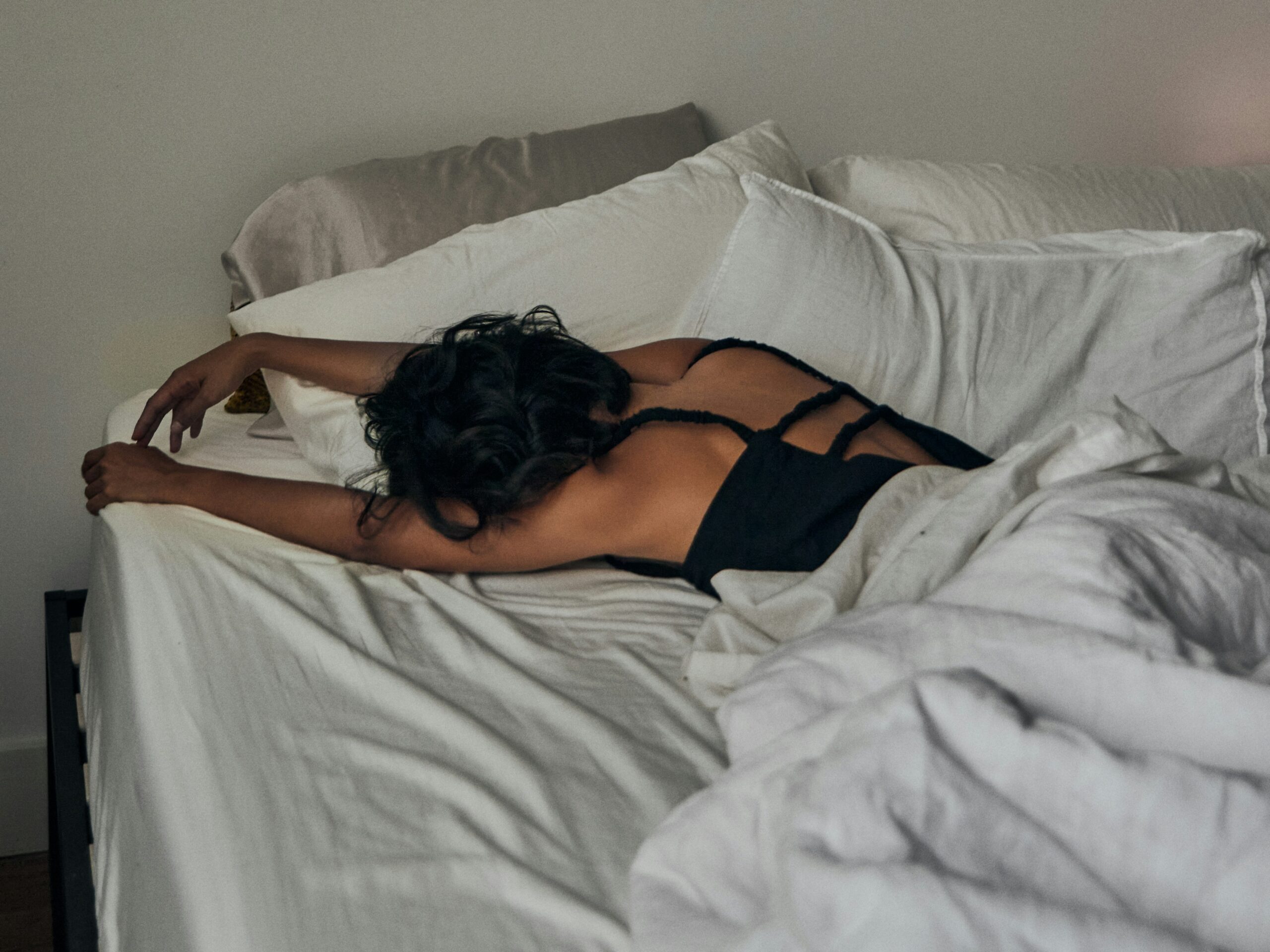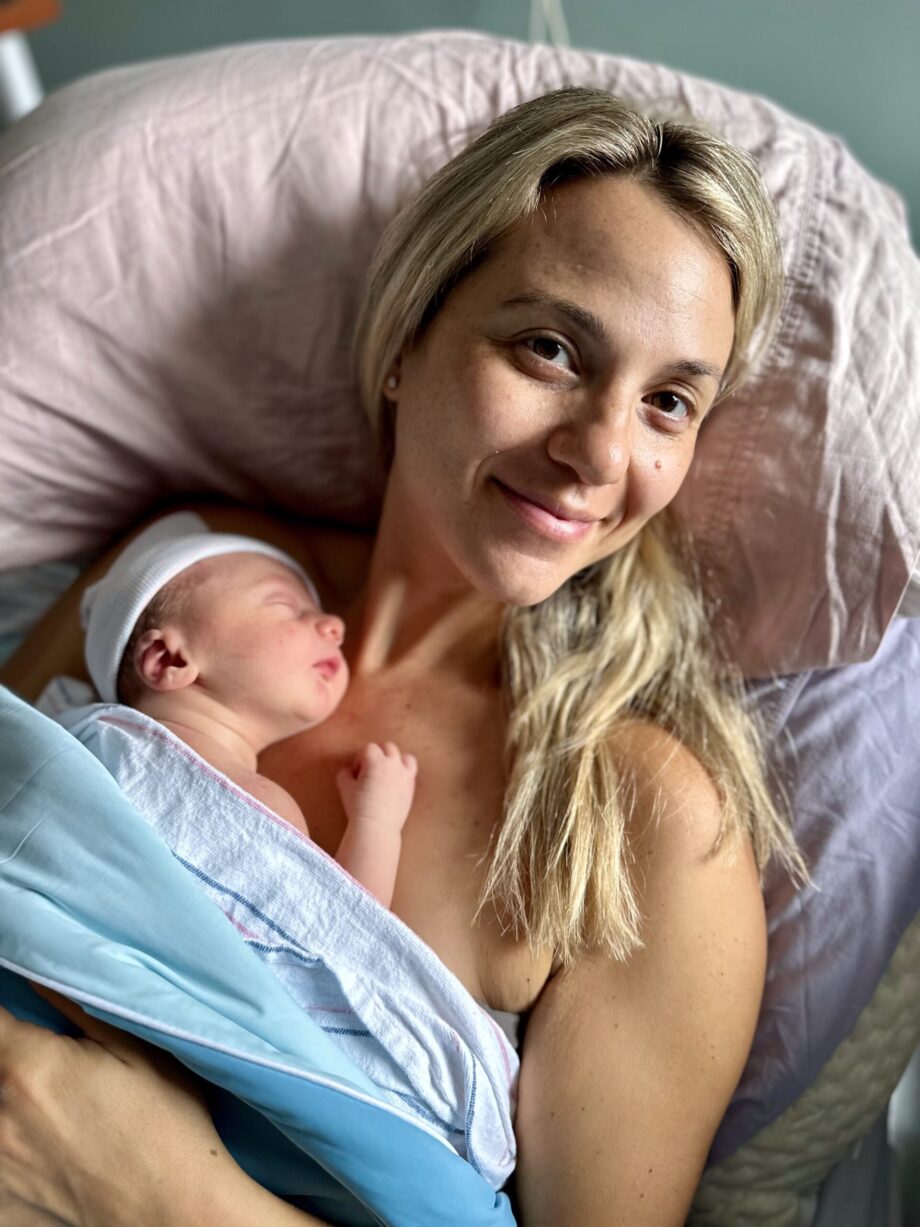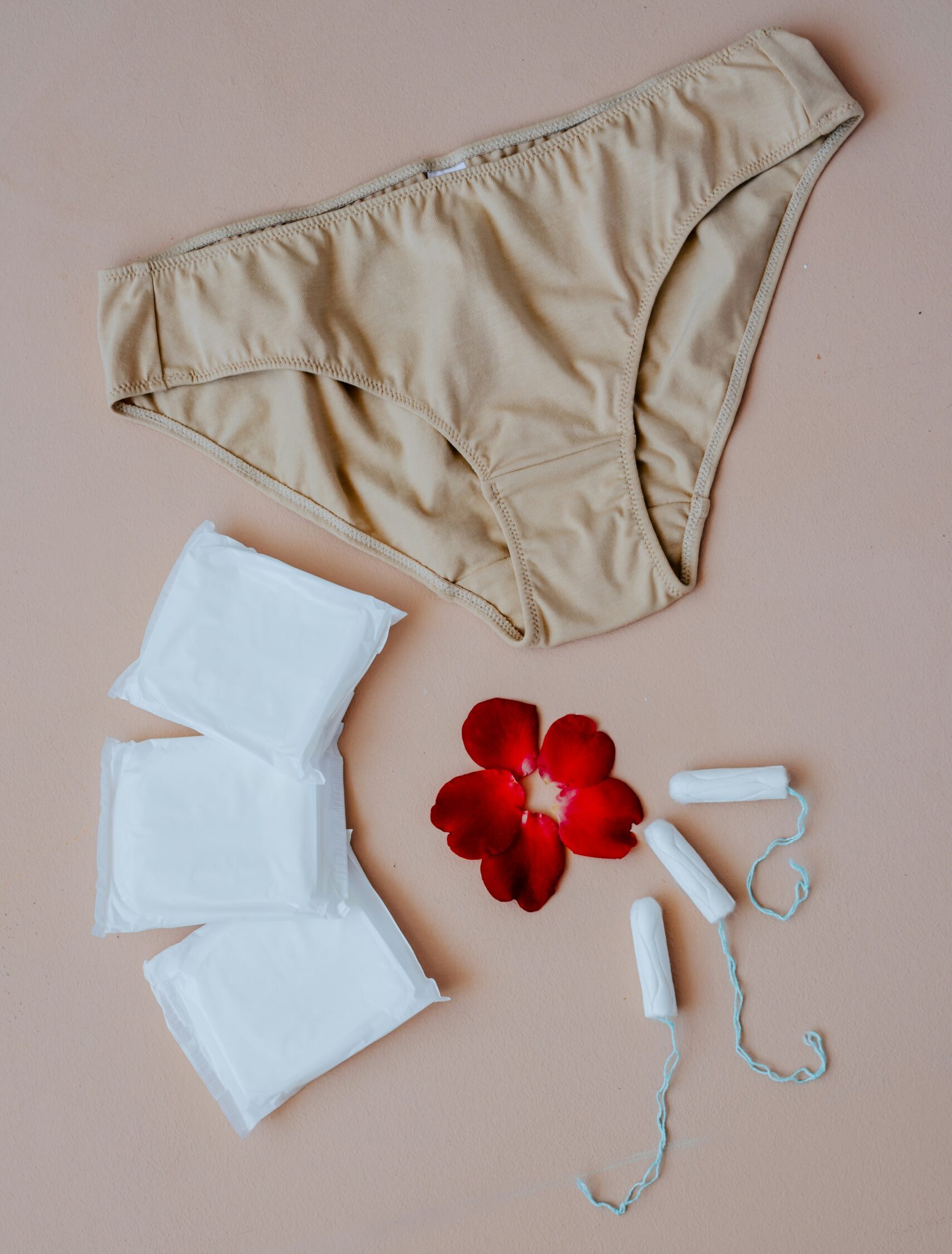If you’ve ever woken up in the middle of the night drenched in sweat, you may have gotten a little glimpse into what it’s like to experience postpartum night sweats (or even menopausal night sweats, for that matter!). While there’s a lot going on with your postpartum health, night sweats might be something for which you’re unprepared. Understanding how and why postpartum night sweats happen, what causes or exacerbates the experience and how you can find some relief when you’re in the throes of them can help you better navigate that period and keep your middle of the night sweaty sheet and pajama changes to a minimum.
Not everyone who has recently given birth will experience postpartum night sweats, so if you haven’t previously experienced them or you haven’t heard friends or family members mention them before, you may be extra caught off guard if you find yourself getting a little overheated in the middle of the night. That being said, they’re not entirely uncommon either. There’s some research that’s found that approximately 29 percent of people who’ve recently given birth report experiencing night sweating.
There may be some things that might tip the scales a bit to make it more likely that you’ll experience postpartum night sweats, but you should know that if you do experience them, you’re far from alone.
From what causes night sweats to how you can cool yourself down, here’s what you need to know.
- What are postpartum night sweats?
- What causes postpartum night sweats?
- How postpartum hormones affect night sweats
- At-home remedies for postpartum night sweats
What are postpartum night sweats?
Postpartum night sweats are, as they sound, night sweats that you experience shortly after giving birth, during the postpartum period. Though some postpartum sweating can happen during the day, it’s more likely to experience this as night sweats, per What to Expect. While it might feel a bit alarming to suddenly find yourself swimming in sweat, even when you’re not moving all that much, postpartum night sweats are normal and generally don’t indicate anything about which you should be concerned.
What causes postpartum night sweats?
According to Rebecca Levy-Gantt, M.D., an OB/GYN at Premier ObGyn Napa and author of the forthcoming book, Perimenopause for Dummies, if you breastfeed, you may be more likely to experience postpartum night sweats. “This can be from dehydration during breastfeeding, but can also be from the huge drop in hormones that occurs as soon as the placenta is removed,” Dr. Levy-Gantt says.
That being said, even if you’re not breastfeeding, you may find yourself a little sweatier than usual—especially at night—during the postpartum period. According to BabyCenter, postpartum night sweats can also result from your body shedding the extra water it held onto during pregnancy. Not only that, but being a new parent is stressful, and you may find yourself sweating as a bodily response.
For the most part, all of this sweating is completely normal, though it can be extremely uncomfortable to experience (not to mention inconvenient). However, it’s still good to keep an eye on your postpartum health if you’re dealing with night sweats because in rare instances, they could be a sign of something more serious.
“If postpartum night sweats are so severe that a person cannot sleep for multiple days, they may require some blood tests to check for anemia, thyroid function or some other, rare medical conditions,” Dr. Levy-Gantt says.
If you’re concerned that your postpartum night sweats might be too serious to shrug off as normal, it’s best to check in with your healthcare provider just to make sure everything is fine.
How postpartum hormones affect night sweats
As with many things with postpartum health, the shifting hormone levels your body is dealing with while recovering can have major impacts on whether or not you experience postpartum night sweats and how bad those night sweats may be.
“Postpartum night sweats are almost always due to the severe changes in hormone levels that occur surrounding the change from pregnancy to the postpartum period, and are especially associated with lactation,” Levy-Gantt says.
Mary Kinyoun, M.D., an OB/GYN at Nebraska Med told the health system’s women’s health blog that there’s an especially steep drop in estrogen levels after giving birth and that can contribute to night sweats.
It’s not just estrogen that drops once you give birth, it’s progesterone levels as well. And if you’re nursing, prolactin levels can force your estrogen levels to stay low, as Dara Matseoane-Peterssen, M.D., the chief of general obstetrics and gynecology at New York-Presbyterian Allen Hospital, said in an interview with Parents. It’s a perfect storm for hormonal symptoms because it puts your body into a situation not unlike menopause.
Changing postpartum hormones can cause your hypothalamus (the area of your brain that regulates temperature) to find itself a bit out of sorts, making it more difficult for your body to make adjustments to your body temperature as needed. So whether you’re nursing or not, postpartum sweating can certainly happen.
Your hormone levels being what’s making your nighttime rest a bit sweatier can actually be good news in the sense that things should regulate over time. In the meantime, there are plenty of things that you can do to try to cool yourself down a bit and get some relief.
At-home remedies for postpartum night sweats
Being sweaty can be seriously uncomfortable at the best of times, but when you’re also trying to recover from what may have been a pretty traumatic experience, not to mention navigating a big life transition, finding yourself extra sweaty can feel like the final straw.
You likely have a good idea of at least some basic, initial tools you can try to get some relief from all of the sweating: taking off some layers (like shaking off a blanket or wearing lighter pajamas), drinking a glass of cool water, aiming a fan at the bed, or turning on the air conditioning, but if you’re experiencing postpartum night sweats, there are other things you can try as well.
Dr. Levy-Gantt suggests cutting back on alcohol, spicy foods, and caffeine, using a cooling mattress or a set of cooling sheets, sticking to a healthy diet and drinking plenty of water.
If you’re worried that the heat might actually be a fever, take your temperature. If it’s above 100.4 degrees Fahrenheit, give your doctor a call to get their professional opinion. Because fevers can be a sign of infection (and infections after giving birth can be dangerous), it’s important to take your postpartum health seriously. Finding out you called your doctor unnecessarily always feels better than ignoring something you shouldn’t have.
For more deep dives on the postpartum health experience, navigating the transition to motherhood, and essays from a mother’s perspective, visit The Mother Chapter. We’re on a mission to share honest, useful information about the motherhood experience because too many people overlook or dismiss what the postpartum period is like for parents. Join the community at The Mother Chapter—parents are in this together.
Author
-

Lauren Schumaker fell in love with food at a young age. After attending culinary school in Chicago, she moved to Athens, GA to earn her master's in journalism at the University of Georgia. While in Athens, she took over the food-focused Locavore column in Flagpole magazine. She was also an editorial intern at Sauce Magazine in St. Louis, where she continued to freelance. Lauren worked as a lifestyle writer and editor for years, with bylines appearing in places like Romper, INSIDER, Tales of the Cocktail and The Everygirl. When she's not working, you can find her in the kitchen cooking, spending time with her dog, Brody, or working on her endless TBR list.
View all posts




